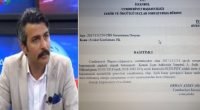Erdogan’s parallel state in Kosovo functions despite PM Haradinaj

Date posted: March 30, 2018
Julien Hoez
On the 29th March 2018, six Turkish nationals from a college in Kosovo were “urgently” detained, arrested, and subsequently deported to Turkey due to alleged links to exiled cleric Fethullah Gülen. No doubt that this move took place following the tremendous political pressure by the Turkish government.
According to Turkey’s Anadolu Agency, the Turkish secret service (MIT) has cooperated in an excellent manner with security forces in Kosovo to deport these educators.
The incident happened four days after the EU leaders shook hands with president Erdogan during the EU-Turkey Summit in Varna, Bulgaria. At the press conference, Erdogan stated that Turkey is a county where rule of law prevails and fundamental rights and freedoms are guaranteed by his administration. Then, all the four leaders stroked a pose smirkingly.
Indeed, a similar incident had occurred in Kosovo several months ago. Kosovo Police arrested another Turkish academic, Ugur Toksoy, for being a follower of Gulen Movement—which Erdogan has labeled a terrorist organization—and for taking part in the 2016 coup attempt. The judge in Pristina decided on a 40-day custody awaiting decision for extradition to Turkey, although there was no evidence on any of these crimes, except for an arrest warrant from Turkey.
That being said, what happened yesterday in Kosovo is scandalous in its nature and different than the one mentioned above. First of all, Ramush Haradinaj, the Prime Minister, was not informed of the situation. On Facebook, Haradinaj published a statement raising questions regarding the apparent urgency of the deportation.
On Twitter he published a similar statement, noting that “as the Prime Minister, [he] was not informed about this operation, therefore I will act according to my legal and constitutional competencies.”
Today, in the operation conducted by #Kosovo Intelligence Agency, 6 turk citizens have been deported. Myself, as the Prime Minister, was not informed about this operation, therefore I will act according to my legal and constitutional competencies.
— Ramush Haradinaj (@haradinajramush) March 29, 2018
This followed initial confusion in regards to the circumstances of the arrest, with the minister of interior having initially stated that the six Turkish nationals had been arrested due an issue of residency rights.
No doubt, this event raises questions in regards to the position of the Prime Minister within his own government. Likewise, there are several questions that could be asked in regards to the possibly clandestine nature of these deportations.
In that respect, one needs to ask, if not the Prime Minister, then who authorized this without his knowledge and why? The most recent episode of this event has been the Prime Minister demanding that the Minister of the Interior resigns his post, which leads us to question why, and whether the possibility exists that this was an issue of corruption by Turkey within the Kosovo Government?
More importantly, is there any role played by President Hashim Thaçi who is known to be very close to the Turkish government? After all, it seems that Turkey’s Erdogan has a parallel state in Kosovo that executes decisions without the the knowledge of the incumbent prime minister and minister of foreign affairs.
Secondly, what happened in Kosovo should be considered as part of Erdogan’s longstanding ambitions for the entire region. Since the attempted coup back in June 2016, he has been pursuing a very bitter agenda to eliminate his opponents, mainly followers of Gulen Movement, not only in Turkey but also in countries where Turkey can exercise influence through various means.
The Western Balkans has been one of the regions where Erdogan Administration ope-rationalizes its state-funded institutions in coordination with its envoys to bring people of Gulen Movement forcefully to Turkey through illegal means including mafia-tic abductions and deportations via intelligence cooperation.
KOSOVO UPDATE |
Six Turkish educators are kept at Pristina airport to be deported following the request by Erdogan Administration — developing pic.twitter.com/lrtQ1O49pD
— Vocal Europe (@thevocaleurope) March 29, 2018
As a small and relatively young nation-state within the Western Balkans, Kosovo is obviously vulnerable to the influences of multiple international actors: most notably Turkey, Russia and the European Union. Turkey also happens to be a significant supporter of the small state, with multiple financial projects in place and investments being fed into Kosovo, increasing its vulnerability to any political pressures that Turkey may choose to exert on its government.
Accordingly, the entire affair has also highlighted the dangers that Recep Tayyip Erdoğan poses to the region. It is very clear that the more Turkey under Erdogan puts pressure on its own political dissidents in the Western Balkans, the more these countries are shifting away from their EU path.
What deportation of six Turkish national based on the request of Erdogan Administration results is that a country like Kosovo with the perspective of EU integration is now at the edge of an internal crisis where prime minister accuses president and interior minister of acting in line with Erdogan’s authoritarian demands.
Source: Vocal Europe , March 30, 2018
Tags: Education | Europe | Hizmet-inspired schools | Kosovo | Persecution of Hizmet by Erdogan | Turkey |
























